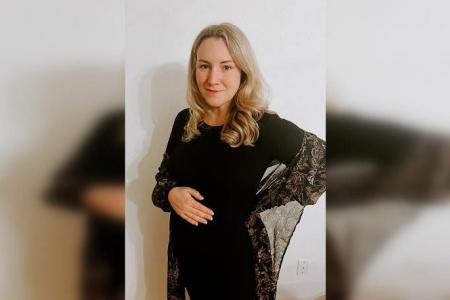Texas judge allows US woman with risky pregnancy to have abortion
AUSTIN – A Texas judge on Dec 7 allowed a woman with a potentially life-threatening pregnancy to have an abortion in a challenge to the US state’s strict laws prohibiting the procedure.
District Judge Maya Guerra Gamble said Mrs Kate Cox, who is 20 weeks pregnant, should be permitted to have an abortion under a provision of the Texas law that allows the procedure when a woman’s health is at risk.
The case is one of a number brought around the country on behalf of women denied abortions since the US Supreme Court overturned Roe versus Wade in June 2022, which had granted a constitutional right to the procedure.
Mrs Cox, a mother-of-two from Dallas-Fort Worth, learned last week that her foetus has full trisomy 18, a genetic condition that means her pregnancy may not last until birth and if it does her baby would live at most a few days.
Ultrasounds revealed multiple serious conditions including a twisted spine and irregular skull and heart development.
Mrs Cox, 31, sued the state to obtain an abortion for a pregnancy that she and her doctors said threatens not only her life but her future fertility.
After a court hearing of less than an hour featuring arguments by the Centre for Reproductive Rights, which is representing Mrs Cox, and an attorney for the state, Judge Gamble said she would grant a temporary restraining order allowing Mrs Cox to get an abortion.
“The idea that Miss Cox wants desperately to be a parent and this law might actually cause her to lose that ability is shocking and would be a genuine miscarriage of justice,” the judge said.
Texas authorities are expected to appeal the decision and it is not clear when Mrs Cox can actually get an abortion.
A state “trigger” ban went into effect in Texas when Roe versus Wade was overturned, prohibiting abortions even in cases of rape or incest.
Texas physicians found guilty of providing abortions face up to 99 years in prison, fines of up to US$100,000 (S$134,000) and the revocation of their medical licence.
The Texas law does allow abortions in rare cases where the mother’s life could be at risk but physicians have said the wording is unclear and they risk serious legal consequences.
‘Hands are tied’
Texas also has a law that allows private citizens to sue anyone who performs or aids an abortion.
Because of the way the Texas abortion law is formulated, Mrs Cox’s physicians had told her their “hands are tied” and she would have to wait until her baby dies inside her.
Mrs Cox was joined in her lawsuit by her husband, Justin – who is seeking a favourable legal ruling to assure he won’t be prosecuted for assisting his wife in getting an abortion – as well as by obstetrician-gynecologist Damla Karsan, who said she was willing to terminate the pregnancy with court approval.
The Texas Supreme Court heard arguments last week in a case brought on behalf of two doctors and 20 women who were denied abortions even though they had serious – in some cases life-threatening – complications with their pregnancies.
The lawsuit, also filed by the Centre for Reproductive Rights, argues that the way medical exceptions are defined under the conservative state’s abortion restrictions is confusing, stoking fear among doctors and causing a “health crisis.”
The Texas Supreme Court is expected to soon issue a decision whether to block the state’s abortion bans in cases such as Mrs Cox’s. – AFP
Get The New Paper on your phone with the free TNP app. Download from the Apple App Store or Google Play Store now


